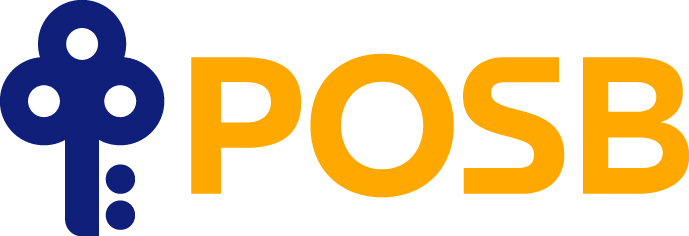From broke to boss: How this personal finance ‘noob’ mastered money management
Financial planning may seem daunting, but this writer shows how small, consistent habits can pave the way to financial freedom.

With POSB's four money habits as a guide, content creator Celine Leong gradually transformed her relationship with money and improved her overall financial health. Photos: Celine Leong

This audio is generated by an AI tool.
A few years ago, I tried withdrawing S$10 from an automated teller machine (ATM) with S$12 in my account and was declined. It was then that I realised that there is a minimum cash withdrawal requirement of S$20 at Singapore’s ATMs.
That was not my proudest moment, but it opened my eyes to how my financial habits – or lack thereof – weren’t serving me well. I realised it was time to make a change.
I started by saving a portion of my income each month. Over time, I began exploring how I could protect and grow my money, as well as plan for retirement.
I recently discovered POSB’s four money habits to achieve financial wellness, which closely align with my own approach – not just for saving, but also protecting, growing and securing my financial future. If you’re just starting your financial wellness journey, this guide is a handy resource to help you along the way.
1. SAVE: SETTING ASIDE EMERGENCY CASH
Before I learned about good money habits, I thought saving meant depriving myself of all the fun in life. But a simple mantra changed my perspective: Save before you spend.
I began by setting aside a portion of my take-home pay. It wasn’t much at first – about 10 per cent – but hey, baby steps are still progress! My goal was to save enough emergency cash to cover at least six months of expenses to cushion myself from unexpected financial challenges. It took me about eight months to reach that target. Although it was challenging at first, once saving became a habit, I found I could spend the remaining money with peace of mind.

2. PROTECT: SAFEGUARD WHAT MATTERS MOST
From the time I started working, my parents have always urged me to get insurance. I didn’t fully appreciate why at the time. The stereotype of insurance agents as pushy and sales-focused made me reluctant to engage with them. I’d put off conversations about health, life and critical illness coverage, thinking that these were issues for “someday”. It took a close friend’s sudden stroke for me to realise how crucial insurance is for financial stability.
Insurance may not be the most thrilling topic but it’s fundamental for peace of mind, shielding us and our loved ones from unforeseen situations. I started by securing health insurance to protect against large medical bills and ensuring critical illness coverage at about four times my annual income. When it comes to insurance, there are six key areas to cover – health, life, critical illness, mortgage, disability and general. While I haven’t checked off every box yet, I’m committed to getting there.
Pro tip: It’s always better to start early, review regularly and top up your coverage when your life stage changes.
3. GROW: MAKE MY MONEY WORK FOR ME
After saving six months’ worth of living expenses and ensuring I had adequate insurance coverage, I decided it was time to make my money work harder.
I get it, investing sounds intimidating. I used to think investing was only for the wealthy and never thought I’d dive into it.
However, I soon realised that leaving my money in a savings account was not going to help me achieve financial freedom. I started investing 10 per cent of my take-home pay into diversified, long-term options and gradually increased my monthly investments. Investing shouldn’t be a one-time affair – being consistent with investing allows me to benefit from compounding over the long term.
Watching my investments grow, even slowly, has been incredibly empowering. It’s a step I never imagined I’d take, but now I feel much more confident and secure about my financial future.
4. RETIRE: TAKING CHARGE OF MY FUTURE
Retirement may not be top of mind for many, especially when you are in your 20s. I, too, initially struggled to picture my retirement years. It seemed like a distant concern, one that was far removed from my current reality. But if there’s one thing I’ve learned in my financial journey, it’s that I always regret not starting sooner, which is why I began to consider my post-career years more seriously.
To kickstart my planning, I imagined what my ideal retirement and financially-free life would look like. I used tools like the retirement planner on POSB digibank to estimate the amount required to achieve that vision.
As a freelancer without regular employer Central Provident Fund (CPF) contributions, I routinely check and top up my CPF balances to maintain a healthy retirement fund. I aim to create multiple income sources to supplement my retirement income from CPF, so I’m also exploring other passive income streams. Currently, apart from investing in dividend-paying stocks, I haven’t quite established another one yet.

I’m not too worried, however, as I’ve learned that financial planning is a journey. While I’ve not reached financial freedom, it’s reassuring to know that I’m laying the groundwork for a comfortable retirement. With POSB’s four money habits – save, protect, grow and retire – as my guide, I now feel more confident in navigating the world of personal finance.
It hasn’t always been easy but I’m glad I got started. Embrace the journey, stay positive and let your efforts take you to your desired future. Remember, the best time to start was yesterday. The next best time is today.
ABOUT THE AUTHOR:
Celine Leong is a full-time content creator, host and producer. Her channel MiniMoochi explores themes of family and coming-of-age experiences.













